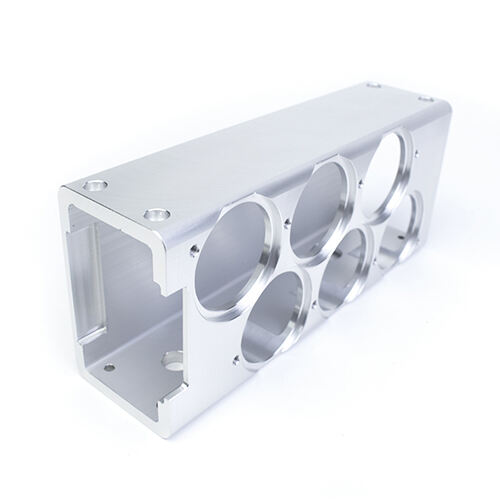CNC մոդելավորումը հետազոտում է արդյունավետությունը բոլոր ուստանկներում
Արագ և ճշգրիտ մշակության մասին մշակող աշխարհում, որտեղ նորությունը հաճախ կախված է արագությունից և ճշգրտությունից, CNC պրոտիպավորումը դեռևորացրել է տարածքը՝ սկսած օդանավային տեխնոլոգիաներից մինչև սպառողական էլեկտրոնիկային արդյունքներ։ Կանխադրվող որպես նիշական արտադրողական գործիք, հաշվարկչային թվային կառավարում (CNC) պրոտիպավորումը հիմա կենտրոնական է դարձել այն կերպ, որով ընկերությունները նոր արդյունքներ բերում են շուկային մասնակիցներին։

Արագացնում է նորությունը
CNC պրոտիպավորումը ներառում է ավտոմատացված, հաշվարկչով կառավարվող մաքնինների օգտագործումը՝ ստեղծելու համար ճշգրիտ ֆիզիկական մոդելներ 디ջիտալ iếtներից։ Տեխնոլոգիան թույլ է տալիս ինժեներն ու դիզայներն արագ իտերացիաներ կատարելու, թեստելու ֆունկցիոնալությունը և դիզայնը պարզեցնելու առանց այն հատուցումների, որոնք հաճախ կապված են تقليստական գործիքների հետ։
Ենթադրյալ ազդեցությունը տարածքում
Տեխնոլոգիան ընդունվում է ավտոմոբայլ ստեղծումի պարաներում, որտեղ արագ մոդելավորումը կարող է օգնել փորձարկել աերոդինամիկ կոմպոնենտները, և մեդիցինական սարքերի զարգացման մեջ, որտեղ CNC-մաշինավորված մոդելները համարժեք կինեկտիկ փորձերին համապատասխանում են:
Սկիզբնավորությունները և փոքր գործընկերությունները նաև ստանում են կառուցյալ եզրակացություն: CNC ծառայություններին հասանելիությունը՝ հաճախակի այնուամենայնի անունով պլատֆորմների միջոցով, նշանակում է, որ նույնիսկ սակայն ռեսուրսներով գործընկերությունները կարող են մոդելավորել բարդ մասներ, որոնք համապատասխանում են ճշգրիտ նորմաներին:
Ճշգրիտությունը համադրվում է համեմատելիությամբ
Ավելի քիչ արագություն և արժեքանշանների դասակարգումից դուրս, CNC մոդելավորումը նաև նպաստում է համեմատելիության նպատակներին: Ավելի քիչ նյութական թարմացումներով և լայն մասշտաբով արտադրության փորձերի պահանջների նվազեցմամբ, CNC մաշինավորումը համապատասխանում է ավելի կանգնում արտադրության միջոցներին:
Ապացուցելով առաջ
Արդիականները նպաստում են, որ AI-հաղորդված iếtնագրացման օպտիմիզացիայի և հիբրիդ մարմնացումի գործընթացների հետ միանալով CNC պրոտոտիպավորումը շարունակ է զարգանալ։ CNC-ի ինտեգրացիա 3D տպագրումի և ավելացման մարմնացումի այլ տեխնոլոգիաների հետ ստեղծում է նոր հնարավորություններ պարունակ փոքր քանակով արտադրության համար։
Երբ նորությունը արագացում է բոլոր բաժներում, CNC պրոտոտիպավորումը գտնվում է առաջնումով՝ հանգունեցում և ուժունեցում ապագանի և մարմնացումի ապագանի ապագան։


